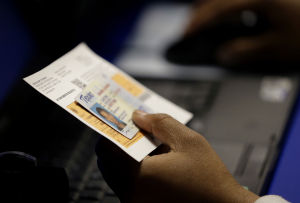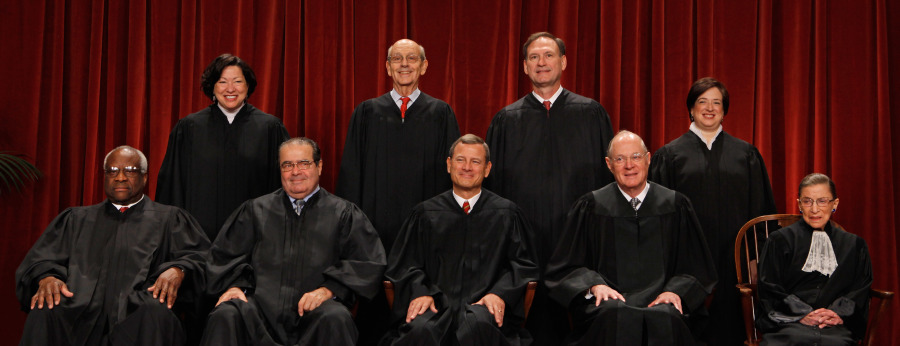Today the five conservative justices of the Supreme Court upheld a Texas voter identification law, which will likely make it impossible for as many as 600,000 Black and Latino voters to participate in next month’s midterm elections.
I concur with the Court’s ruling; the four liberal justices dissented.
‘The greatest threat to public confidence in elections in this case is the prospect of enforcing a purposefully discriminatory law, one that likely imposes an unconstitutional poll tax and risks denying the right to vote to hundreds of thousands of eligible voters,’ Ginsburg wrote in dissent.
(The Associated Press, October 18, 2014)
But neither this ruling, nor its breakdown along partisan lines, should surprise anyone who knows anything about the “politics” (as opposed to the legal reasoning and judicial precedents) that inform this Court’s rulings. For the one thing that distinguishes this Court is that the justices Republican presidents nominated invariably vote on the side of issues that affirms conservative ideology; whereas those Democratic presidents nominated invariably vote on the side that affirms liberal ideology.
Of course, the ideological nature of Court rulings only reflects the even more partisan nature of politics these days, which makes it impossible for conservatives and liberals to agree on anything. Accordingly, as an unabashed liberal commentator, I would be expected to join the chorus of those hailing Ginsburg’s dissent, as surely as every conservative commentator is hailing the Court’s ruling.
Except that I’m on record decrying fellow liberals for opposing “progressive amendments” to Voting Rights Act of 1965:
… which include requirements that voters present valid IDs at the polls, and that states provide translators for voters not fluent in English.
(“Blacks Commemorate Civil Rights Act … by Spewing Racial and Anti-Semitic Hatred!” The iPINIONS Journal, August 11, 2005)
 In other words, I see nothing wrong with states requiring all citizens to have government-issued identification for voting (and other) purposes. And it’s an insult to Blacks who had to pass literacy and other plainly discriminatory requirements during Jim Crow days to call this a “poll tax.”
In other words, I see nothing wrong with states requiring all citizens to have government-issued identification for voting (and other) purposes. And it’s an insult to Blacks who had to pass literacy and other plainly discriminatory requirements during Jim Crow days to call this a “poll tax.”
More to the point, if Black and Latino leaders (along with their enabling White ideologues) had spent just a little of their time and efforts over the past decade ensuring that Blacks and Latinos had proper IDs, they would not be fighting this civil rights battle, which should have been settled in the twentieth century.
Therefore, despite insidious political pandering, this case was not about denying anybody the right to vote. Instead, it was about the failure to ensure that previously disenfranchised minorities were fully prepared to avail themselves of this right.
Related commentaries:
Blacks commemorate…
